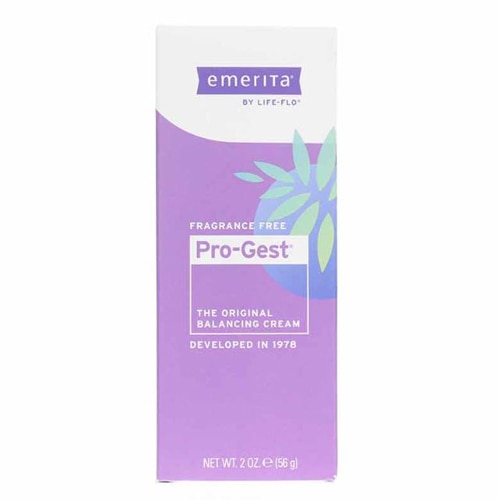[vc_row][vc_column][vc_column_text]With
menopause comes a host of changes, many of them perceived as unwelcome, such as hot flashes, brain fog, vaginal dryness, insomnia and weight creep, particularly around the belly.
But rather than thinking of menopause as a cascade of irritations akin to a death sentence, it may be more helpful to frame it as a transition, not unlike puberty, which leads from one biological time of life to a new phase. This helps cultivate an attitude of curiosity about “the change.”

Curiosity leads to agency: taking the next steps to work with the new circumstances you find yourself in. Resentment, on the other hand, fosters a victim like stance, which can reinforce passivity. As a hallmark of the maturity that comes with menopause, you get to make choices that support you living the best version of yourself.
Let’s take weight gain, for example. It is all too common to hear a patient say to me “I can’t believe how much weight I’m gaining, nothing has changed, except of course my weight! I have not changed my diet, exercise routine, or the rest of my lifestyle. But I’m also tired, and don’t have enough
energy to get through the day so I end up having more and more caffeine. What is going on? What can I do?”
If you’re close to menopause, or in post-menopause (you’ve had one year since your last period), insidious weight gain can come with the territory. Many women say it’s as if new fat appeared on their abdomen and thighs out of nowhere. Let’s first look at why this may be happening:
Changes in metabolism
Changes in
metabolism can occur as we age due to insulin resistance, a state in which the body’s cell membranes shut down their insulin receptors (or docking sites) which would normally allow insulin to carry glucose (sugar) into the cell to be burned for energy. When these insulin docking sites are turned off, it results in more glucose in the blood stream. More glucose gets converted to fats, then more fats get stored in the liver or in a fat cell. Instead of glucose being burned up inside the cell and used for energy, it transforms into fat. You can guess what happens next—what happens on a cellular level gets reflected in the body, which packs on the pounds.
Changes in hormones
Weight gain can also be associated with a woman’s changes in
hormones. As a woman heads closer to menopause, her female hormone estrogen starts to decrease and this drop in estrogen can impact the stress hormone “cortisol.” This tends to result in a diminished ability to convert active
cortisol into its inactive form “cortisone.” The increased sensitization of cortisol receptors in a woman’s thighs and belly can lead to an accumulation of fat in these areas.
Changes in thyroid hormone
Some women start to have other endocrine or hormonal issues around menopause, such as changes in their thyroid, that can trigger weight gain. Though not typically a postmenopausal issue, it is important to be aware of how low
thyroid gland functioning, resulting in a high TSH (thyroid stimulating hormone) and low T4 and T3 (your thyroid hormones), can lead to increased weight gain. Other companion symptoms, such as constipation, dry skin, hair loss, fatigue and depression, may come along for the ride as well.
How to avoid the ripple effect of metabolic and hormonal changes? Here's what you can do.
How to avoid menopause weight gain
Get exercise savvy
The best way to mitigate insulin resistance is to boost metabolism with exercise, but not all exercise transforms metabolism equally. In general, when you exercise regularly you also impact your insulin receptors to better allow insulin to carry glucose into cells to be used for energy.
Resistance training (making your muscles work against a weight or force), is good for just about every tissue in your body. It does double duty when it comes to maintaining a strong metabolism.
Research has found that when you create microtears in your muscles from lifting weights, you not only increase growth hormones, but you help boost your metabolism—and lower your caloric needs for days afterwards. Since muscles are metabolically active, they burn more calories than fat. Thus, a strength building regime will enhance insulin sensitivity, decrease insulin resistance and make you better able to utilize the carbohydrates you eat. Voila! You have a more efficient running system designed to support a stable metabolism. One of the best ways to prevent the weight gain so many of us associate with middle age, is to get lifting!
Where to start: Aim to do two to three full-body strength training workouts per week. There are three main types of strength training: hypertrophy training which encourages growth of muscle cells (do three sets of 10 reps of total body like weighted squats, bench press and deadlifts); strength training which increases strength (five sets of three to four reps of similar exercises at a heavier weight); and power training (three to four sets of three to four reps of max-intensity exercises, like box jumps, squat jumps or kettlebell throws).
Make tactical dietary adjustments
Lower your carbs! Decreasing carbs in your diet will also positively impact your insulin receptors. It will make them more sensitive, thus when you do eat carbohydrates you will be better able to convert the food into energy. What does it mean to lower carbs? It means cutting back on bread, rice, potatoes, pasta and all the sweet treats so many people unconsciously choose (as a form of comfort).
Instead choose meals with lots of organic produce, lean protein, quality fats found in avocado and olives, legumes,
beans, nuts and seeds. If you eat meat, then choose organic lean chicken, turkey and beef. Consider a
paleo-type diet (a grain-free diet) which loads you up with protein and fiber to help you feel fuller longer, staving off cravings. Protein also helps preserve muscle mass with age. And because your body can’t store protein, you need to eat it every day.
Where to start: Karen Ansel, RD, author of Healing Superfoods for Anti-Aging recommends consuming a moderate 20 and 25 grams of protein per meal. Try high-protein meal prep ideas to get your daily fill of this important macronutrient. Or check out the
Rosedale Diet which also focuses on lower carbs, adequate protein and a lot of vegetables.
Give your adrenal glands some love
Supporting your
adrenal glands during menopause with lifestyle changes, herbs and nutrients, can help to mitigate some of the weight gain associated with menopause. Clues that your adrenal glands may need some extra attention include difficulty sleeping, lowered capacity to cope with stress, blood sugar fluctuations, fatigue, changes in mood and reduced mental clarity.
Where to start: You can test your adrenal glands release of cortisol with a saliva test, called an Adrenal Stress Index, taken four times throughout a day. The test will also measure other adrenal hormones like DHEA. See your naturopathic or functional medicine doctor for more information. Natural solutions for low adrenal function ranges from botanical supplements like Reishi (Ganoderma), to taking vitamin B5 (pantothenic acid) in the range of 200 – 400 mg a day. Also eating regular meals, keeping cortisol levels on an even keel and managing insulin surges by eating a lower carb diet all help to support your adrenal glands.
Explore thyroid hormone treatment
Be sure to have
thyroid hormones checked as hypothyroidism (low thyroid) can masquerade as just “the natural aging process” when in fact a real condition exists that can easily be treated.
Treatment typically involves giving thyroid hormone which requires a prescription. Note that there are synthetic thyroid compounds, such as synthroid, and natural thyroid medications, such as Armour thyroid.
Where to start: Naturopaths tend to prescribe “nutrition” for a person’s thyroid and give supplements that support the production of thyroid hormone and the conversion of inactive T4 to the active form called T3. These nutrients include vitamins and minerals such as vitamin B6, zinc, selenium, and iodine. Several herbs—guggul extracts, rosemary and ashwagandha—are also known to enhance thyroid function.
You don’t have to gain weight with or after menopause. The hormonal transition associated with menopause can be quite transformative, instead of your energy going towards taking care of others, it can be a catalyst for you to start giving yourself the time and care that your body, mind, and spirit crave. You can use the change of life to become as healthy and vital, as you can be.
[/vc_column_text][/vc_column][/vc_row][vc_row][vc_column][vc_text_separator title="Featured Products" border_width="2"][vc_row_inner equal_height="yes" content_placement="middle" gap="35"][vc_column_inner width="1/2"][vc_single_image image="155682" img_size="full" alignment="center" onclick="custom_link" img_link_target="_blank" css=".vc_custom_1635278099125{padding-right: 7% !important;padding-left: 7% !important;}" link="https://www.vitacost.com/source-naturals-evening-primrose-oil-hexane-free-500-mg-180-softgels"][/vc_column_inner][vc_column_inner width="1/2"][vc_single_image image="155686" img_size="full" alignment="center" onclick="custom_link" img_link_target="_blank" css=".vc_custom_1635278430032{padding-right: 7% !important;padding-left: 7% !important;}" link="https://www.vitacost.com/himalaya-menocare"][/vc_column_inner][/vc_row_inner][/vc_column][/vc_row]
 Curiosity leads to agency: taking the next steps to work with the new circumstances you find yourself in. Resentment, on the other hand, fosters a victim like stance, which can reinforce passivity. As a hallmark of the maturity that comes with menopause, you get to make choices that support you living the best version of yourself.
Let’s take weight gain, for example. It is all too common to hear a patient say to me “I can’t believe how much weight I’m gaining, nothing has changed, except of course my weight! I have not changed my diet, exercise routine, or the rest of my lifestyle. But I’m also tired, and don’t have enough energy to get through the day so I end up having more and more caffeine. What is going on? What can I do?”
If you’re close to menopause, or in post-menopause (you’ve had one year since your last period), insidious weight gain can come with the territory. Many women say it’s as if new fat appeared on their abdomen and thighs out of nowhere. Let’s first look at why this may be happening:
Curiosity leads to agency: taking the next steps to work with the new circumstances you find yourself in. Resentment, on the other hand, fosters a victim like stance, which can reinforce passivity. As a hallmark of the maturity that comes with menopause, you get to make choices that support you living the best version of yourself.
Let’s take weight gain, for example. It is all too common to hear a patient say to me “I can’t believe how much weight I’m gaining, nothing has changed, except of course my weight! I have not changed my diet, exercise routine, or the rest of my lifestyle. But I’m also tired, and don’t have enough energy to get through the day so I end up having more and more caffeine. What is going on? What can I do?”
If you’re close to menopause, or in post-menopause (you’ve had one year since your last period), insidious weight gain can come with the territory. Many women say it’s as if new fat appeared on their abdomen and thighs out of nowhere. Let’s first look at why this may be happening:



